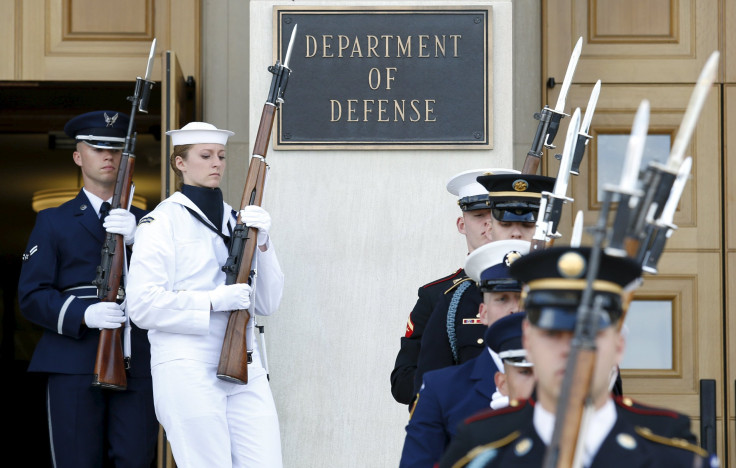House Passes Defense Authorization; Fight Remains Over Legislation

WASHINGTON -- The House passed Friday morning, on a largely partisan vote, a comprehensive defense authorization bill -- the legislation that allows continued operations overseas and directs how the Pentagon can spend its billions. With 41 Democrats supporting the bill and eight Republicans opposing it, the defense authorization passed 269 to 151.
The $612 billion package, the National Defense Authorization Act, still faces a long, difficult road to being signed by President Barack Obama. The Senate has yet to begin considering its version, which is likely to contain a number of divergences from the House that then must be ironed out in a conference committee. And with Republicans making few attempts to compromise with Democrats, it remains a strong possibility Obama will veto the bill, forcing Congress to take another stab at compromise. The House bill failed to garner enough Democrats to reach the 289 veto override threshold.
The partisan divide over the NDAA is unusual, with both sides historically coming together over the legislation. And the divisions sharpened greatly in the last week, with Speaker John Boehner, R-Ohio, calling opponents “shameful” and abandoning the troops.
“Whatever our troops need to get the job done, they should get it, and the House has acted to provide just that,” Boehner said after the bill passed. "This bill increases troop pay and benefits, reinforces the mission to defeat ISIL, imposes greater restrictions on transferring terrorists, strengthens our cyberdefenses, provides lethal aid to Ukraine, boosts our missile defense capabilities, and much more.”
The legislation faced strong Democratic opposition, with the leadership arguing that it fails to address the spending caps imposed by the sequester. The sequester -- which places limits on defense and domestic spending -- became law when Congress failed to reach a long-term agreement on spending in 2011.
Neither party likes the sequester, with Republicans wanting more defense spending and Democrats pushing for more domestic spending. It was designed to be so awful for both sides that they would be forced to work out a deal. Instead, the Republicans have designed a way to avoid the defense limits. They have put increased money for regular operations in a fund known as the Overseas Contingency Operations, a pot of money designed to fund the wars in Iraq and Afghanistan. It isn’t subject to the sequester limits.
Critics say funding regular military operations through a one-time separate fund meant for war spending is a irresponsible fiscal decision. And Democrats are unhappy that they are being forced to alleviate the sequester for the Pentagon but not for the domestic side.
Further vexing the dispute over the bill, this week it became a front in the immigration fight. The original bill included language that would let foreign-born children who had been brought to the country illegally by their parents -- the so-called Dreamers -- obtain citizenship after serving in the military. Obama signed an executive order allowing them to remain in the country legally. Inclusion of the provision drew strong opposition from conservatives, who thought support it would be read as backing Obama’s immigration executive orders.
Rep. Mo Brooks, R-Ala., successfully stripped the language from the bill that would have allowed those Dreamers to join the military, arguing that immigrants would be taking military jobs away from Americans. That served to only increase Democratic opposition.
© Copyright IBTimes 2024. All rights reserved.





















